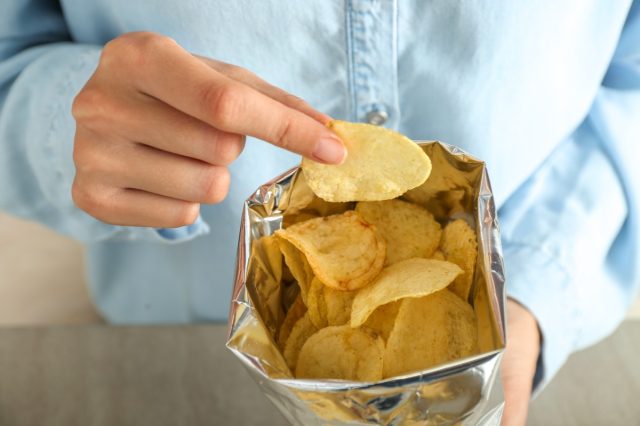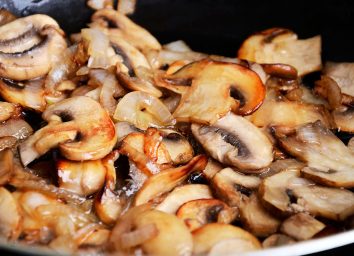Eating Habits to Avoid For a Better Immune System, Say Dietitians

For many people, the scariest thing about winter approaching isn't the thought of digging out those snow boots and braving the increasingly bitter weather: it's the return of cold and flu season. While washing your hands thoroughly, avoiding crowds, and steering clear of anyone you know to be sick can all help reduce your risk of coming down with something, those measures may not be enough to keep you safe. In fact, many of your eating habits could be putting a damper on your immune health, making it harder for you to fend off those nasty bugs going around.
If you want to protect yourself, read on to discover the eating habits you should avoid for a healthier immune system, according to experts. And for more ways to improve your overall health, check out The 7 Healthiest Foods to Eat Right Now.
Your diet lacks diversity

They say variety is the spice of life—and it just so happens to be one of the best ways to boost your immune system, too. In fact, Amanda Sauceda, MS, RDN, CLT, says that a lack of diversity on your plate could be crippling your immune health.
"If you're eating the same thing over and over, it could be a potential downer for your immune health. With 70% of your immune system in your gut, you want to look to your intestines to boost your immune system. You want a gut microbiome that has a healthy variety of bacteria which means you need to feed those gut bugs with different types of foods," Sauceda explains. "An easy way to get variety is to eat different colored fruits and veggies and foods across the food groups."
You don't eat enough prebiotic foods

If you're depriving the beneficial bacteria in your gut of adequate prebiotic fiber, you could be doing your gut health a disservice along the way.
"Prebiotics are the fuel for probiotics (the good bacteria in our gut)," says Kara Landau, RD, a gut health expert dietitian and founder at Uplift Food. "A diet lacking prebiotics starves our gut bacteria, causing a lack of diversity within the microbiome. Poor gut health, in turn, increases the inflammatory markers in our body and decreases the immune response." If you want to boost your microbiome, make sure to check out these dietitian-approved ways to get more prebiotics in your diet.
You eat too much sugar and fat

While practically everyone indulges their cravings for sugary treats or fried food from time to time, eating too much sugar and fat can have a profoundly negative effect on your immune system.
"A poor diet can lead to the immune system becoming overloaded and result in a pro-inflammatory state. This inflammation is linked to a number of chronic diseases, including diabetes, heart disease, and autoimmune conditions such as rheumatoid arthritis. A diet that is high in refined sugar, high in saturated fats, and low in fiber can lead to this inflammation," explains Sheetal DeCaria MD, an integrative physician and wellness expert at Revitalize Medical Center.
You eat too much processed food

It's not just the sugar and fat content in your food that may be negatively affecting your immune health, however. Trista Best, MPH, RD, LD, from Balance One Supplements, says that packaged food products loaded with additives can have a similar effect.
"Processed foods are those made from refined carbohydrates, stabilizers, emulsifiers, and other ingredients to enhance shelf stability, flavor, and texture," explains Best. "When we eat foods like this in large quantities they can irritate the gut, cause an imbalance in gut bacteria, and ultimately leads to chronic low-grade inflammation. This inflammation can lower the body's proper immune response and lead to an increase in acute and chronic illnesses."
You significantly limit your calories

While limiting your caloric intake may help you lose weight, doing so can also have a detrimental effect on your immune system.
"With any caloric restriction, the body's metabolic rate lowers in efforts to conserve energy for vital processes. In doing so, processes like immune support decline," says Rachel Fine, RDN, owner of To The Pointe Nutrition. "One such reason is the body's inability to efficiently absorb specific immune-boosting micronutrients, such as vitamins A and E, both of which require adequate body fat stores for absorption, storage, and utilization," Fine adds.
If you want to give your immune system a leg up, check out these Drinking Habits Experts Say Boost Your Immunity, and for the latest healthy living news delivered to your inbox, sign up for our newsletter!








